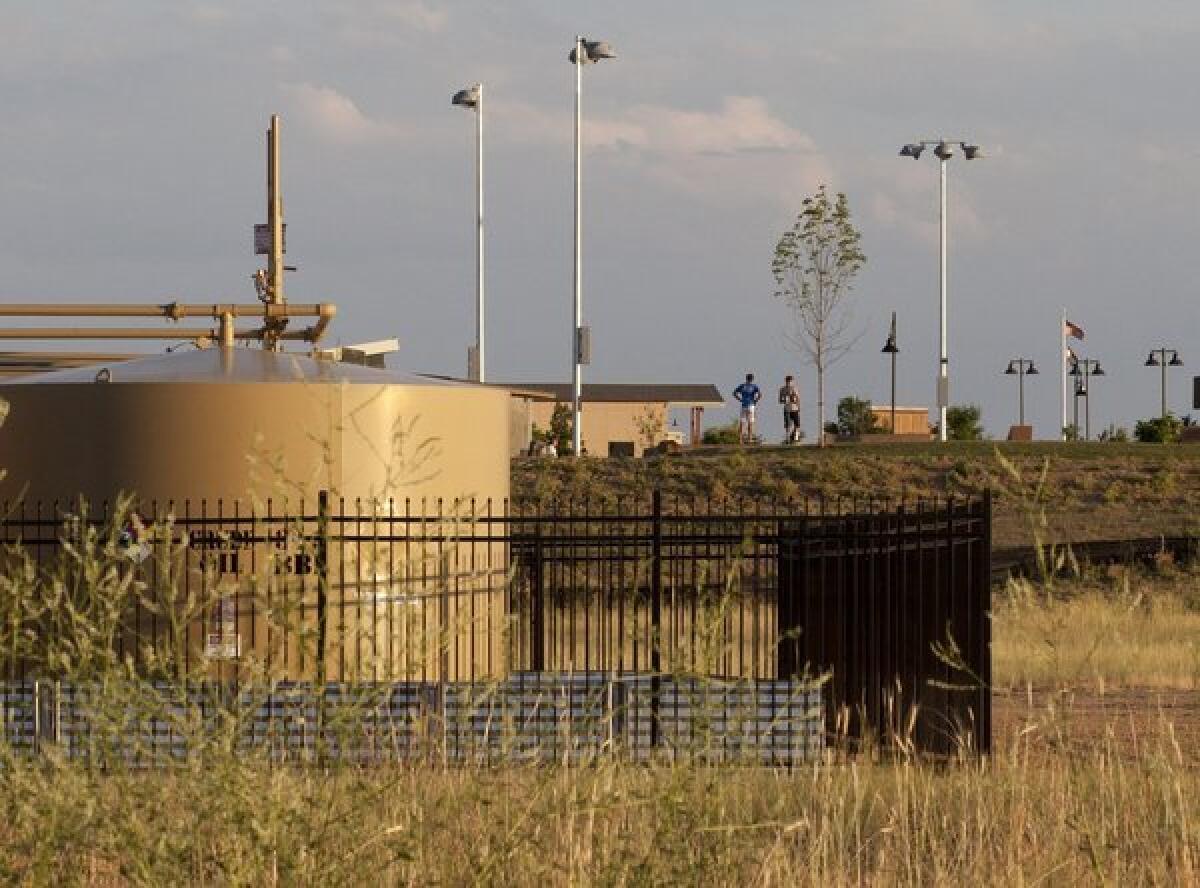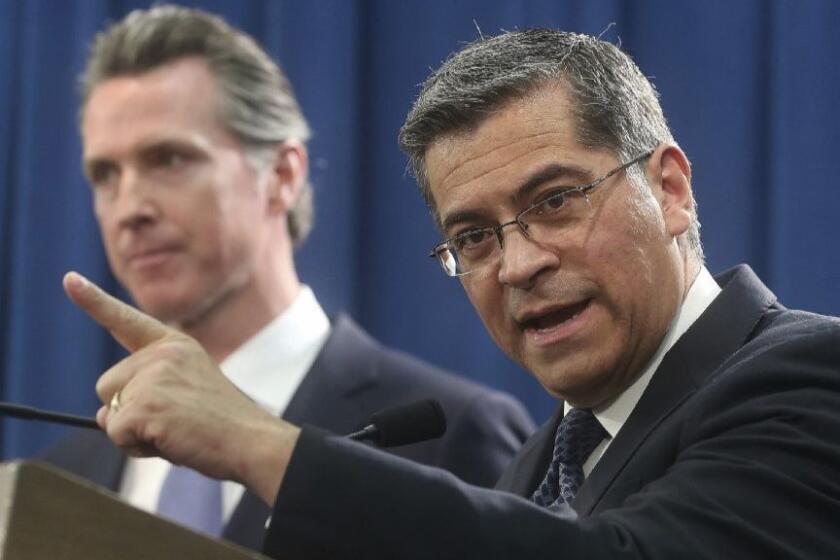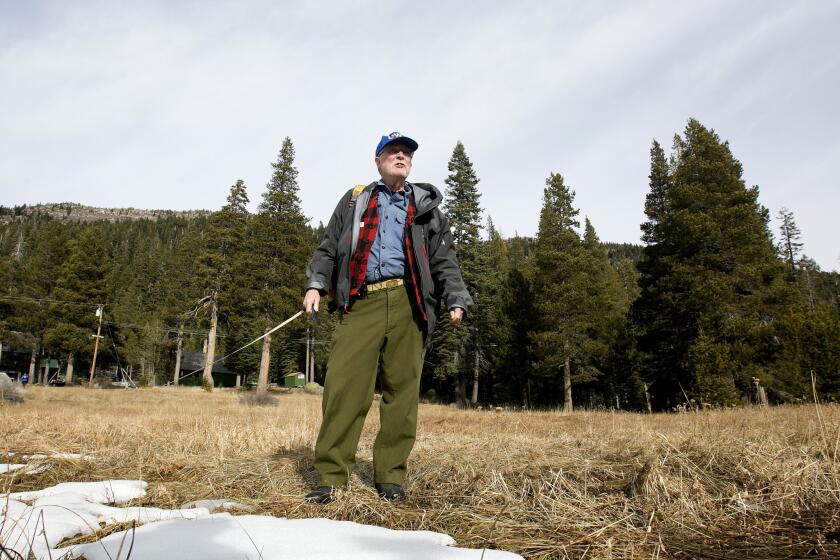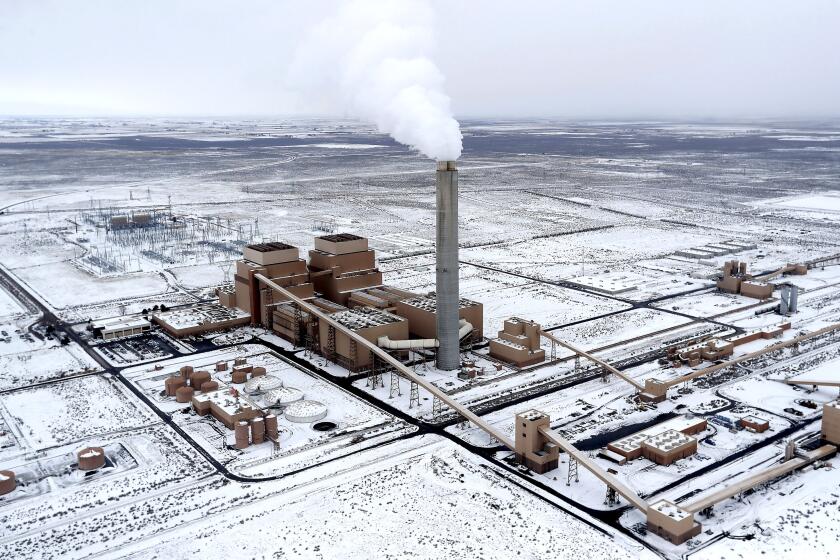Trump administration to roll back rules on methane pollution; California threatens suit

WASHINGTON — The Trump administration plans to roll back regulations on leaks of natural gas from wells, pipelines and other equipment, a move that could significantly increase emissions that cause global warming.
The plan announced Thursday by the Environmental Protection Agency would eliminate rules on methane emissions that even some major oil and gas companies have told the administration should be kept in place.
Methane, the main component of natural gas, is an extremely powerful greenhouse gas, as much as 80 times more potent than carbon dioxide in its impact on the climate, according to some estimates, although it breaks down relatively quickly in the atmosphere. Leaks from equipment and pipelines release it into the atmosphere.
The Obama administration adopted a rule in 2016 that ordered the oil and gas industry to step up its monitoring to look for leaks and to take new steps to prevent them.
The Trump administration’s effort to reverse course must go through a lengthy period of public comment and is not expected to take effect until early next year. When it does, opponents, including California and many environmental groups, have already said they will go to court to seek to block it.
EPA Administrator Andrew Wheeler said the rule is part of President Trump’s direction to do away with “unnecessary and duplicative regulatory burdens from the oil and gas industry.”
The proposal marks the administration’s second effort to reverse the Obama-era regulations. An earlier effort by former EPA chief Scott Pruitt was blocked in court.
The EPA said that its proposal would save the oil and gas industry $17 million to $19 million per year. The agency’s statement did not mention any environmental benefits of its plan.
Environmental groups and other administration critics sharply denounced the move, which marked the administration’s latest effort to dismantle Obama-era environmental regulations that were put in place to confront climate change.
“The Trump EPA is eager to give the oil and gas industry a free pass to keep leaking enormous amounts of climate pollution into the air. We simply cannot protect our children and grandchildren from climate catastrophe if EPA lets this industry off scot-free. If EPA moves forward with this reckless and sinister proposal, we will see them in court,” David Doniger of the Natural Resources Defense Council said in a statement Thursday.
California Atty. Gen. Xavier Becerra called the EPA proposal a “monumentally stupid decision” and said that the state, which has already sued the Trump administration at least 49 times over environmental policy issues, was “ready to fight this senseless decision.”
The oil and gas industry is the primary source of methane emissions in the U.S., accounting for nearly one-third of all emissions in 2016, according to the EPA. Agriculture is another prime source.
Anne Idsal, the EPA acting assistant administrator for the Office of Air and Radiation, said Thursday that the rule change wouldn’t cause emissions to increase.
“We’re not anticipating an uptick,” Idsal said. “Quite frankly, methane is a valuable resource so, again, even if it currently has a negative value, there’s every incentive for industry to minimize ... every type of methane emissions.”
Opponents of the administration plan dispute that. In 2016, when the Obama administration put in place the regulations that the Trump administration now wants to reverse, it estimated the rule would reduce methane emissions by the equivalent of 11 million metric tons of carbon dioxide.
The administration’s proposal has split the oil and gas business, much as the administration’s plans to roll back fuel economy rules for cars and trucks have split the automotive industry.
Some of the biggest companies in the oil and gas industry, including Exxon Mobil, Shell and BP, oppose Trump’s plan while many smaller operators of gas wells and equipment support it.
At an annual energy conference in March, Shell’s U.S. Country Chair Gretchen Watkins urged the EPA to regulate methane emissions as a climate concern.
More than two years into the Trump presidency, California has embraced its role as chief antagonist — already suing the administration more times than Texas took President Obama to court during eight years in office.
“We don’t usually tell governments how to do their job but we’re ready to break with that and say, ‘Actually, we want to tell you how to do your job,’” Watkins said in an interview with Reuters.
Major companies in the fossil-fuel industry have been eager to promote natural gas as a clean alternative to fuels such as coal. Burning of natural gas produces much less carbon dioxide than burning an equivalent amount of coal, and U.S. greenhouse gas emissions have declined substantially as gas has replaced much of the coal used in many parts of the country to produce electricity.
But the problem of methane leaks has seriously undermined that effort to portray gas as a clean fuel. That has provided a powerful incentive for some parts of the industry to support regulation.
BP American Chairman and President Susan Dio also wrote in an op-ed for the Houston Chronicle earlier this year that the company wants “to protect natural gas’ license to operate” as a source of energy.
Smaller oil-field companies have found the cost of combating leaks more onerous.
The methane limits imposed “a disproportionate effect on small businesses” in the oil industry, Erik Milito of the American Petroleum Institute told the Associated Press. “A lot of mom-and-pops would have their wells shut in, elderly people with wells on their properties that could be shut down.”
Others in the oil industry have argued that existing controls on other pollutants are sufficient to take care of the leak problem and that the Obama-era rules were not necessary.
Back in 1989, Californians received a sobering warning: The accumulation of heat-trapping gases in the atmosphere would likely bring more droughts, floods, fires, and heat waves to the state.
Methane leaks have long been a major concern of environmental groups, several of which pushed back on the EPA’s proposal Thursday.
Kassie Siegel of the Center for Biological Diversity said the administration’s move “highlights the Trump administration’s complete contempt for our climate.”
“The EPA is now so determined to actually increase greenhouse pollution that it’s even shrugging off concerns from oil and gas companies about gutting these protections,” Siegel said.
Sen. Thomas R. Carper (D-Del.), the senior Democrat on the Senate Environment and Public Works Committee, said in a statement Thursday that the proposal was another step down the Trump administration’s “troubling and misguided path” that would “increase profit margins for the oil and gas industry, even if it means cutting common-sense public health and environmental protections.”
Staff writer Anna Phillips contributed to this report.
L.A. will build a gas-fired power plant in Utah, even as Mayor Eric Garcetti touts a “Green New Deal” to fight climate change.
More to Read
Get the L.A. Times Politics newsletter
Deeply reported insights into legislation, politics and policy from Sacramento, Washington and beyond. In your inbox three times per week.
You may occasionally receive promotional content from the Los Angeles Times.














